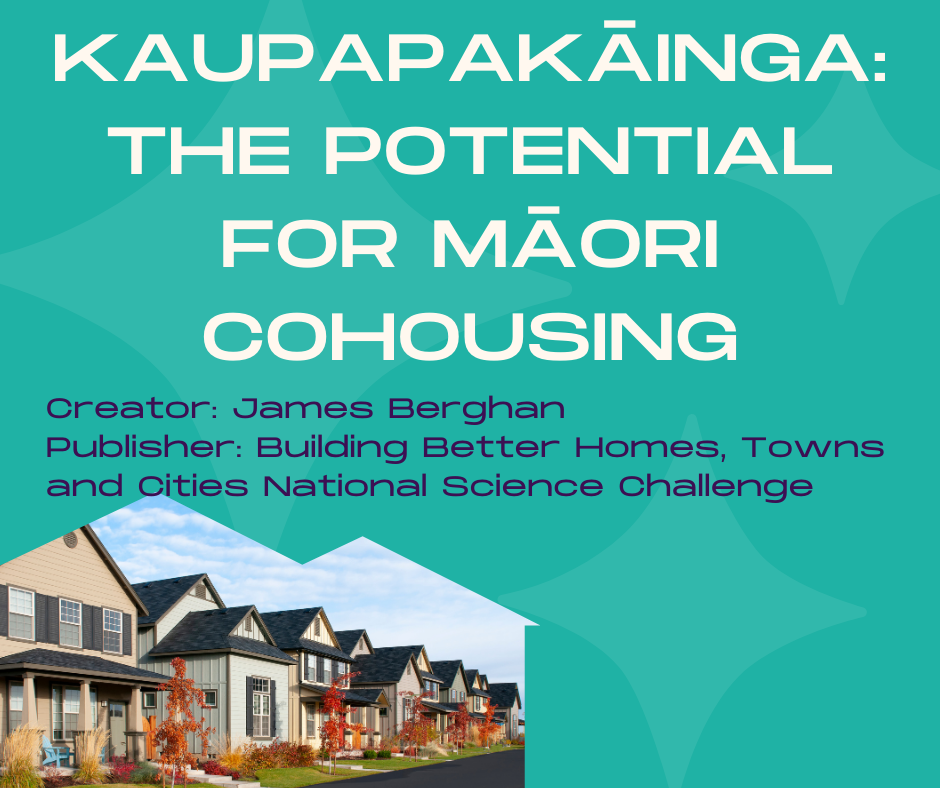This report explores the potential for Māori to co-opt aspects of the cohousing model. A hybrid approach, combining elements of cohousing and papakāinga (as co-papakāinga, or ‘kaupapakāinga’ (kaupapa-based kāinga)) could offer an alternative entry point into the housing market for Māori.
The report begins by contextualising Māori housing, to understand the concept of papakāinga as a uniquely Māori way of living. The paper then shifts to introduce the cohousing model, a Western housing typology with social aspirations which tend to align with some of the values underpinning papakāinga. Drawing on lessons from three case study sites (one papakāinga, one cohousing, and one potential ‘kaupapakāinga’), the report considers the potential strengths and weaknesses of a hybrid Māori cohousing approach in supporting Māori housing aspirations, particularly for urban Māori and those living away from their ancestral lands.

